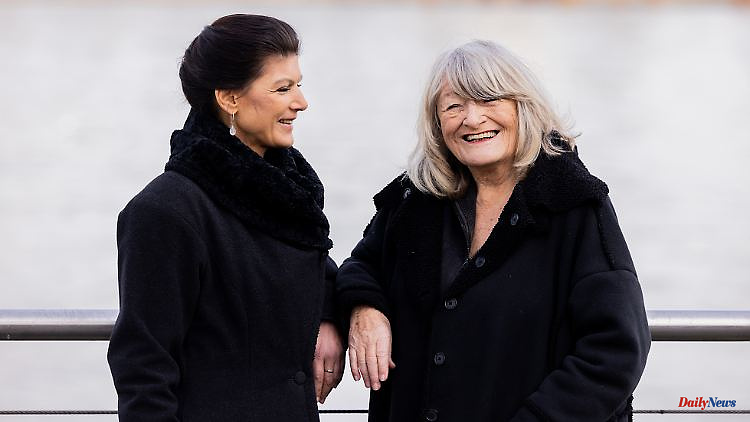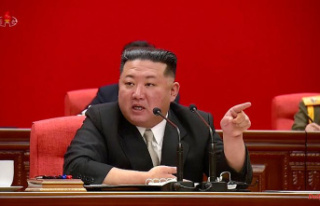Johannnes Varwick was one of the first to sign the "Manifesto for Peace," but now the political scientist no longer wants to have anything to do with the initiative. The background is that extremists are now also among the supporters - as well as an inappropriate video.
One of the first signers of the "Manifesto for Peace", Johannes Varwick, has withdrawn his signature. The political scientist from Halle wrote in a statement that he did not want to associate himself with extremists “in any form or in any matter”. Among the first signatories of the document, which warns of an escalation of the Ukraine war, were "the majority of people with integrity from different political camps," Varwick continued. In the meantime, however, "there are more and more people with whom I do not want to be named". Varwick does not name names.
The left-wing politician Sahra Wagenknecht and the women's rights activist Alice Schwarzer triggered a broad controversy with the "Manifesto for Peace". In a video with which they advertised for more signatories, the 80-year-old Schwarzer says with a laugh: "Some of you are probably surprised to see me shoulder to shoulder with Sahra Wagenknecht, but there is a very serious reason for it." Both women warn against continuing to supply arms to Ukraine. This could ultimately lead to a nuclear war. Both are also calling for a peace rally on February 25 at the Brandenburg Gate.
Their manifesto was supported by 69 first signatories - including the theologian Margot Käßmann, the singer Reinhard Mey, the satirist Martin Sonneborn and former brigadier general Erich Vad as well as Varwick. In his statement, Varwick criticized the video of Schwarzer and Wagenknecht as inappropriate. Although there is nothing to be said against a "relaxed manner" even with serious topics, the way the two women presented themselves was inappropriate and "can rightly be perceived as a provocation by victims of the war".
Schwarzer and Wagenknecht emphasize in their manifesto: "The Ukrainian population, brutally attacked by Russia, needs our solidarity." In their eyes, however, this is not an ever-longer prolongation of the war, which will ultimately turn Ukraine into a depopulated, destroyed country. The two authors are particularly critical of the Ukrainian President Volodymyr Zelenskyy. "President Zelenskyy makes no secret of his goal," they write. "After the promised tanks, he is now also demanding fighter jets, long-range missiles and warships - to defeat Russia across the board?"
In retrospect, Varwick also criticizes the content of the manifesto. "The text did not seem to me to be correct in all points," writes the professor at the University of Halle, "but such a text is always about a consensus version in which not everyone can assert their own handwriting." For this reason he is actually not a friend of such calls. He was initially only asked by Schwarzer whether he wanted to join the initiative, and "probably didn't ask hard enough" whether he should withdraw his signature after Wagenknecht also joined the manifesto.
He continues to support the intention of the call, writes Varwick. He will continue to argue for his arguments and is not afraid of "applause from the wrong side". "But that requires a clear distancing from those supporters who are considered unacceptable." Around 490,000 people have now subscribed to the manifesto by Schwarzer and Wagenknecht on change.org.












